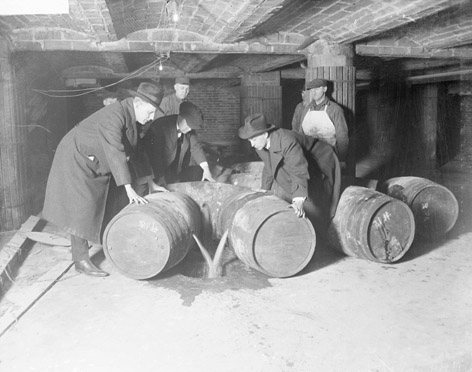California Tobacco Ban Would Treat Adults Like Children
Distressed Patriotic Flag Unisex T-Shirt - Celebrate Comfort and Country $11.29 USD Get it here>>

Commentary
Every now and then I get together with some friends and smoke cigars. Of course, I’m aware of the health effects of tobacco. In 1967, when I was 12, the first political thing I ever wrote was a speech against tobacco use, given before my seventh-grade class at Franklin Junior High School in Wayne, Mich. (Go, Hornets!)
That was just a couple years after the Surgeon General’s famous 1964 Report on Smoking and Health, the Federal Cigarette Labeling and Advertising Act of 1965, and just before the 1969 Public Health Cigarette Smoking Act, which banned tobacco ads on TV and radio.
Students attending schools in California and across America take health classes with copious lessons on the deleterious effects of smoking. Over the years, I’ve examined the textbooks, and the presentation is uncontroversial—unlike, say, topics on abortion or “gender.”
I bring this up because Assemblyman Damon Connolly (D-San Rafael) has proposed Assembly Bill 935, which would completely ban all tobacco sales in California. The ban would not be immediate. Instead, in the bill’s words, it would impose “a phased tobacco ban by prohibiting a tobacco retailer, as defined, from selling tobacco products, as defined, to any person born on or after January 1, 2007.”
If the bill became law now, it would ban sales to anyone 16 years old or younger. Of course, the state already bans tobacco sales to anyone 21 or younger. But 10 years from now, it would ban sales to those 26 and younger; in 30 years, the ban would extend to those 46 and younger. And so on. In 60 years, the ban would extend to those 76 years old and younger.

On the face of it, banning a 76-year-old from buying a stogie is absurd. For one thing, he could just ask a 77-year-old friend to buy one for him. For another, who knows what the world will look like in 60 years?
Looking backward, 60 years ago was March 1963, the year before the Surgeon General’s warning, and America was a totally different place. People smoked everywhere: restaurants, bars, bowling alleys, grocery stores, even hospitals. Kennedy was president. The Beatles were over in England, almost unknown here. The Vietnam War was just starting to get hot.
Another problem AB 935 would face is the Interstate Commerce Clause of the U.S. Constitution, which gives Congress, not a state legislature, the power over sales crossing state borders. Tobacco smokers could just order their products online, as they often already do.
Hire a Helper, a moving service company, provides a handy list of what you can and can’t bring into California. Everything on the list involves an immediate potential hazard, such as plants and animals the state checks for at state border crossings; firearms, which must be legal here and registered soon with the state; and products such as alcohol, which is allowed for those 21 and older.
Alcohol, under the 21st Amendment, which repealed Prohibition, put regulation with the states, and so is not under the Commerce Clause. Section 2 reads: “The transportation or importation into any State, Territory, or Possession of the United States for delivery or use therein of intoxicating liquors, in violation of the laws thereof, is hereby prohibited.”
Speaking of Prohibition—it’s well known that banning alcohol with the 18th Amendment in 1919, until its 1933 repeal, created a vast black market and advanced organized crime. Al Capone didn’t become a rich crime lord selling sodas. Any ban on tobacco, even a “phased” one, would create similar moral hazards.
A ban even might work at first, but then stop working. That happened with alcohol Prohibition in the 1920s. According to a study by the National Bureau of Economic Research, “We find that alcohol consumption fell sharply at the beginning of Prohibition, to approximately 30 percent of its pre-Prohibition level. During the next several years, however, alcohol consumption increased sharply, to about 60-70 percent of its pre-prohibition level.”

A Cato Institute study also found:
“[T]he underground economy swiftly moved from the production of beer to the production of the more potent form of alcohol, spirits. Prohibition made it more difficult to supply weaker, bulkier products, such as beer, than stronger, compact products, such as whiskey, because the largest cost of selling an illegal product is avoiding detection. Therefore, while all alcohol prices rose, the price of whiskey rose more slowly than that of beer.”
Another problem was the alcohol used became less safe, because legal safeguards were of no use to an illegal product. Moonshine doesn’t pay attention to health regulations. Cato again:
“There were few if any production standards during Prohibition, and the potency and quality of products varied greatly, making it difficult to predict their effect. The production of moonshine during Prohibition was undertaken by an army of amateurs and often resulted in products that could harm or kill the consumer. Those products were also likely to contain dangerous adulterants, a government requirement for industrial alcohol.”
Rich people could afford to deal with a fairly honest “bootician,” as they called hoity-toity bootleggers, who for example would bring branded booze in from Canada. Poor people were stuck dealing with less savory suppliers.
Fortunately, such ill effects are far off in the future even if AB 935 is imposed, due to its gradual implementation. But it passes strange how a state recently legalizing marijuana for recreational use, with Proposition 64 in 2016, now might ban tobacco. It’s the flip side of the situation as recently as a few years ago.
Perhaps Assemblyman Connolly and others pushing AB 935 ought to recall there’s a difference between adults and children. We allow adults at their own discretion to undertake certain activities not necessarily beneficial to their health. And as I recounted above, everyone under age 70 today already long has been indoctrinated in the ill effects of tobacco on one’s health. If 21 or older, such Californians ought to be allowed to act as free adults.
Views expressed in this article are the opinions of the author and do not necessarily reflect the views of The Epoch Times.



